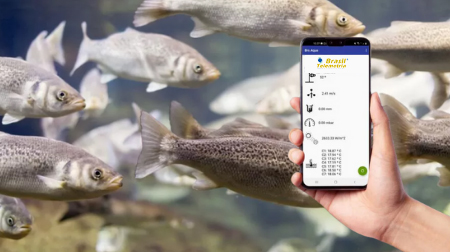ControlDIGI has a research and development area focused on the aquaculture sector, promoting continuous improvement of our products and services in this field.
Our close partnership with CIIMAR (Interdisciplinary Centre of Marine and Environmental Research) based in the city of Porto, Portugal, ensures the use of advanced scientific knowledge, validated by one of Europe’s leading research centers in Aquaculture.
Today, we have implemented an Artificial Intelligence model capable of quantifying fish in feeding areas and controlling the supply of feed only when the minimum quantity of fish is reached. In addition to this control, it is possible to customize the most suitable feeding plan for growth in different stages of breeding, continuously considering the abiotic conditions of the water.
Key Benefits of the Solution:

